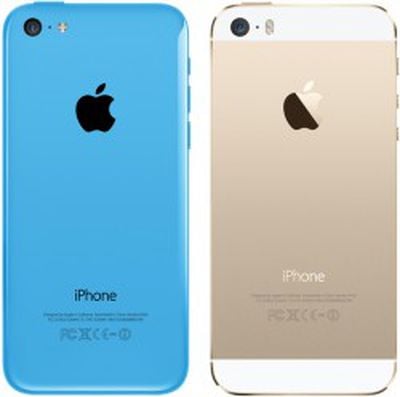 According to a new report from market research firm IDC (via The Wall Street Journal), Apple became China's fifth largest smartphone manufacturer during the fourth quarter of 2013, taking 7% of total market share in the country. Notably, the report does not include iPhone sales numbers from the region's largest carrier China Mobile, which began selling the iPhone through a partnership with Apple last month.
According to a new report from market research firm IDC (via The Wall Street Journal), Apple became China's fifth largest smartphone manufacturer during the fourth quarter of 2013, taking 7% of total market share in the country. Notably, the report does not include iPhone sales numbers from the region's largest carrier China Mobile, which began selling the iPhone through a partnership with Apple last month.
According to research firm IDC, Apple’s market share in mainland China rose to 7% in the quarter from 6% in the third quarter. The fourth quarter was the first full quarter after Apple launched its iPhone 5S and 5C in China in late September, on the same day the new phones came out in the U.S. and a host of other markets. In the past, iPhones went on sale in China months after they were launched in the U.S.
Apple is still behind other smartphone vendors in the country including Samsung, Lenovo, and Huawei, with those companies coming in at first, second, and fourth place, respectively. Apple also remained slightly ahead of newcomer Xiaomi, which notably hired former Google vice president of product management Hugo Barra in August 2013.
Apple has made strides towards improving its presence in China over the past few years, opening new Apple Stores in populated regions and establishing an official store on Chinese e-commerce site Tmall in addition to partnering with China Mobile. CEO Tim Cook has also visited the country numerous times throughout the past few years to meet with both China Mobile executives and government officials to discuss market growth.





















Top Rated Comments
Around the world, people, rich or poor, tend to be willing to pay up to about $250 upfront.
Thus, where devices are not subsidized, people tend to choose a phone with the best features that they can get for that price. As historical data shows, high end iPhones don't sell well at all in such markets, as they're overpriced.
However, the iPhone is subsidized down to "free" in China, which is going to help its sales a lot. As seen in the USA and Japan, when upfront costs are similar, people often choose the iPhone.
Anyway, here's the data in pie chart form. I find it easier to visualize this way:
If Apple is going from 6% to 7%, nobody is really affected by that. The others are much more affected by fluctuations within the 93% than by the 1% that went to Apple.
The iPhone paradox in motion.